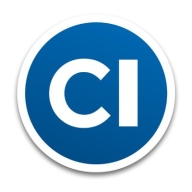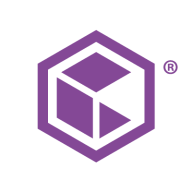

Find out what your peers are saying about Veeam Software, Commvault, Acronis and others in SaaS Backup.
| Product | Market Share (%) |
|---|---|
| Commvault Cloud | 6.1% |
| Cobalt Iron | 0.9% |
| Other | 93.0% |

| Company Size | Count |
|---|---|
| Small Business | 57 |
| Midsize Enterprise | 24 |
| Large Enterprise | 82 |
If yours is like most enterprise companies, backup is your single largest application in-house. That typically means you are running multiple legacy backup solutions (NetBackup, Commvault, Spectrum Protect, etc.) for various business units. This results in high administrative time and less-than-stellar data protection.
With Cobalt Iron’s backup SaaS solution, you can eliminate complexity, dramatically reduce the time you spend on backup, and significantly improve your data protection performance. The result is a comprehensive data protection solution that is flexible, manageable, and affordable.
Compass is a new approach to data protection harnessing analytics and automation to drive out cost and complexity while delivering reliable protection and valuable data insights to the business.
Commvault Cloud is the ultimate cyber resilience platform built to meet the demands of the hybrid
enterprise. Beyond its core functionality of data backup and recovery across diverse workloads, including applications, databases, virtual machines, and files, Commvault Cloud stands out as a robust defense against ransomware. Going beyond backup, the platform integrates advanced data security features such as encryption, access control, and threat detection, safeguarding against unauthorized access and cyber threats.
With tools for data management, classification, and migration, businesses can optimize storage costs, enhance accessibility, and comply with regulations seamlessly. Boasting cloud integration with major providers like AWS, Azure, and Google Cloud, Commvault Cloud leverages the scalability and flexibility of the cloud for comprehensive data protection and management. The platform's automation capabilities streamline tasks, and its reporting and analytics features provide valuable insights into data usage, potential risks, and optimization strategies. Commvault Cloud is not just a security tool; it is a key component of cyber resilience, enabling organizations to not only protect against cyberattacks but also recover swiftly and minimize the impact of incidents. Elevate your cyber resilience strategy with Commvault Cloud.
We monitor all SaaS Backup reviews to prevent fraudulent reviews and keep review quality high. We do not post reviews by company employees or direct competitors. We validate each review for authenticity via cross-reference with LinkedIn, and personal follow-up with the reviewer when necessary.